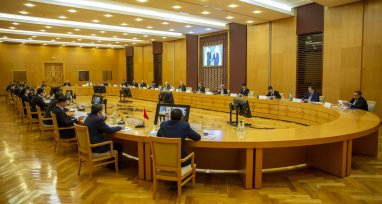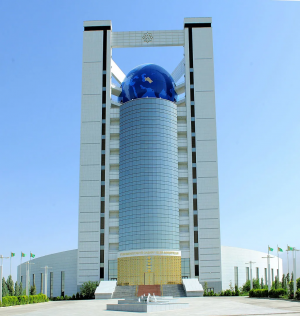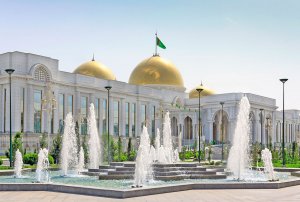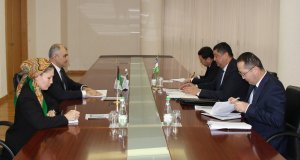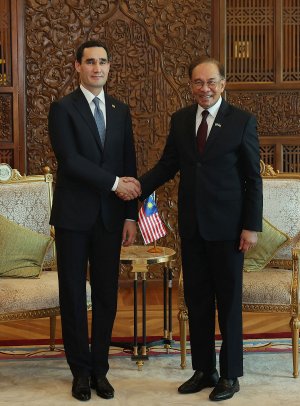Yesterday, the Ministry of Foreign Affairs of Turkmenistan hosted a meeting of the states parties to the Treaty on a Nuclear-Weapon-Free Zone in Central Asia on the topic of “Strengthening Cooperation between Existing Nuclear-Weapon-Free Zones.” The meeting was dedicated to the 15th anniversary of the entry into force of this Treaty, the Ministry of Foreign Affairs of Turkmenistan reports. The purpose of the meeting was to intensify cooperation between the five nuclear-weapon-free zones existing in the world. Turkmenistan is holding this meeting as part of its chairmanship of the Treaty on a Nuclear-Weapon-Free Zone in Central Asia.
The meeting was attended by heads and representatives of the foreign ministries of Central Asian countries and Mongolia, heads of diplomatic missions of the region accredited in Turkmenistan, the Special Representative of the UN Secretary-General for Central Asia, the Head of the UN Regional Center for Preventive Diplomacy for Central Asia, as well as representatives of local and foreign academic circles and research institutes, including those specializing in disarmament and non-proliferation. The Secretary General of the Agency for the Prohibition of Nuclear Weapons in Latin America and the Caribbean (OPANAL) and the Chairman of the African Nuclear Energy Commission joined the meeting via video link.

Experts from the Comprehensive Nuclear-Test-Ban Treaty Organization arrived in Ashgabat to participate in the meeting.
In his speech, Deputy Foreign Minister of Turkmenistan Ahmet Gurbanov noted that Turkmenistan supports the initiatives of the international community to ensure peace, security and sustainable development under the auspices of the UN. The country advocates disarmament, non-proliferation of weapons of mass destruction, and ensuring universal nuclear safety.
.jpg)
Turkmenistan is strictly committed to implementing the provisions of the Treaty on the Non-Proliferation of Nuclear Weapons (NPT).
The meeting discussed issues faced by nuclear-free zones, including the provision of international legally binding security guarantees and improving the relationship between the zones.
Following the forum, the participants adopted the Final Document.

Following the meeting, a Memorandum of Understanding was signed between the Central Asian Nuclear-Weapon-Free Zone and the Agency for the Prohibition of Nuclear Weapons in Latin America and the Caribbean (OPANAL), the source notes.
